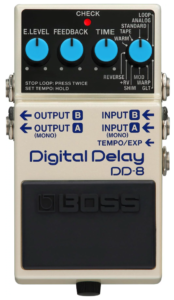

It'll sound different each time.Įcho is defined by distinct repetitions of a sound occurring after 30 milliseconds. Snap your fingers, or as I do, make a sharp clicking sound with your mouth, and try to listen to the room around you instead of yourself. Weird, huh? With enough practice though, you can turn off this feature and notice the reverb that occurs in every space. It blends the reverb with the original sound before you even notice it and then tells you that it all came from the same location, just so you don't get confused. Your brain is specially equipped to notice reverberations before your conscious perception does. So first you'll hear the original sound and then all the stuff bouncing off the walls, furniture, trees, people, giraffes and even acoustic tiling. This is all the sound that immediately bounces off any nearby surfaces before it gets back to your ears.

Reverb is characterized as random, blended repetitions of a sound occurring within thirty milliseconds after the sound is made. Here are the technical definitions of each: Reverb and echo are two different things. 'Reverb' isn't just some fancy term to make industry professionals feel elite, though I'm sure it has that effect. Wait, what? What gives? Is there a difference? But when you're in a large room and you hear your own voice distinctly coming back to you, you call it echo. When you're working on music and you want to add some nice room ambiance to a vocal track that you recorded dry, you add reverb.


 0 kommentar(er)
0 kommentar(er)
